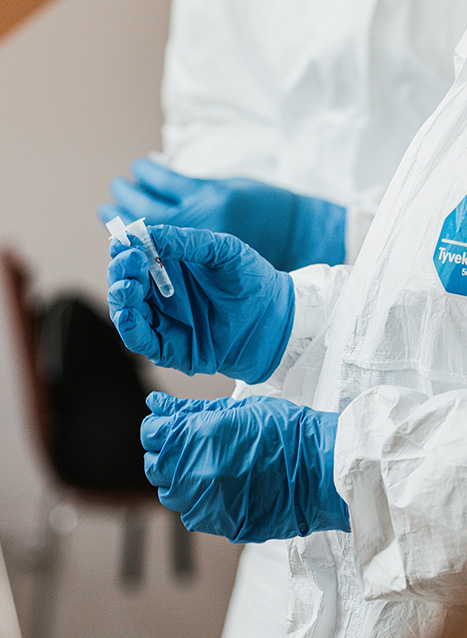Evacuations from Israel and High-Risk Locations Call +44 (0)1202 308810 or Contact Us →

Dengue Fever Outbreak in Hong Kong
29 Aug 2018
Hong Kong health officials have reported an outbreak of dengue fever, with 26 cases reported since 14 August 2018, when the first case of a local contraction of the disease was reported. Nine of the cases were reported by those who either lived on or had visited the island of Cheung Chau, while the other 17 cases occurred in those who had visited Lion Rock Park or Wong Tai Sin. The speed at which the outbreak has spread or emerged has worried officials in the Special Administrative Region. Dr Wong Ka-hing, the Centre for Health Protection controller, described the current local outbreak of dengue fever as “very quick” and “unprecedented”.
Key Points
- Hong Kong health officials have announced that the number of dengue fever cases locally acquired has reached 26 in 2018.
- The first case of dengue was reported on 14 August.
- The number of cases of Dengue is the highest since 1994.
Situational Summary
Health: Hong Kong health officials have reported an outbreak of dengue fever, with 26 cases reported since 14 August 2018, when the first case of a local contraction of the disease was reported. Nine of the cases were reported by those who either lived on or had visited the island of Cheung Chau, while the other 17 cases occurred in those who had visited Lion Rock Park or Wong Tai Sin. The speed at which the outbreak has spread or emerged has worried officials in the Special Administrative Region. Dr Wong Ka-hing, the Centre for Health Protection controller, described the current local outbreak of dengue fever as “very quick” and “unprecedented”. Most dengue fever cases which have historically occurred in Hong Kong have been the result of contraction of disease outside the territory before importation into Hong Kong; these 26 victims were infected locally. The last time a large number of local cases was recorded in a short period of time was in 2002 when 20 cases were reported within two months. At least 61 imported cases, mostly from Thailand, the Philippines, and Cambodia have also been reported.
What is Dengue Fever?
Dengue is a viral infection spread by mosquito bites and is a leading cause of illness and death in tropical and subtropical regions. Approximately 400 million people globally are infected each year. The disease is caused by one of four related viruses (dengue 1, 2, 3, 4). The illness is most common during the rainy season when infected female Aedes aegypti and Aedes albopictus mosquitoes are prevalent. These mosquitoes prosper in areas where standing water (including puddles and open water tanks) is present and usually bite from dawn until dusk, most commonly early in the morning or evening. Lack of reliable sanitation and regular garbage collection also contribute to the spread of the mosquitoes. Dengue is not spread from person to person.
Dengue infection does not guarantee lifelong immunity from the illness. There is no specific treatment and a vaccination is only recommended by the World Health Organisation in an area where dengue is endemic. Travellers who are most at risk are generally aid workers and those on long-term assignments.
Symptoms
Symptoms begin three to 14 days after a bite from an infection and can include:
- A fever which may reach higher than 40oC
- A severe headache/migraine
- Eye, joint, and muscle pain
- Feeling or being sick and a loss of appetite
- A red rash
Symptoms are usually resolved within one to two weeks and many people may show few to no symptoms at all. However, for a small number of people, symptoms can develop into dengue haemorrhagic fever (DHF). This serious illness is characterised by internal or external bleeding. Without proper treatment, DHF can be fatal due to very low blood pressure; children are most at risk from this complication.
What Next?
There are fears that upcoming wet weather may encourage the current outbreak to grow. Moreover, Dr Leung Chi-chiu, chairman of the Medical Association’s Advisory Committee on Communicable Diseases in Hong Kong, has stated a fear that the outbreak may grow and spread to new locations when schools begin again in September. Lion Rock Park will be closed for the coming weeks to allow officials to conduct operations to eradicate mosquito breeding sites. Education programmes have been implemented for Cheung Chau. Officials have also announced that from 27 August, plans would be implemented to spray insecticide around all homes and schools on Cheung Chau, before the new academic year begins on 03 September. Hong Kong health officials have also informed their counterparts in mainland China’s Guangdong and neighbouring Macau.
SECURITY ADVICE
HealthModerateTravellers are always advised to contact their doctor at least six weeks before travelling.
Travellers should undertake simple precautions to avoid being bitten for all locations where mosquitoes are prevalent. Measures include:
Treatment for dengue does not involve a cure. Instead, treatment involves relieving symptoms, allowing the infection to run its course. If travellers believe they have contracted dengue, they should seek immediate medical advice. In general, those who contract the illness are advised to do the following:
For most travel to Hong Kong, Solace Global would not advise clients of the need to employ enhanced security measures. However, certain measures may be advisable dependent on activities and profile of travellers. It is also advised to use travel-tracking technology with an intelligence feed. This should enable a traveller to be alerted of any security updates within their vicinity and to update others of their movements in case of an emergency.